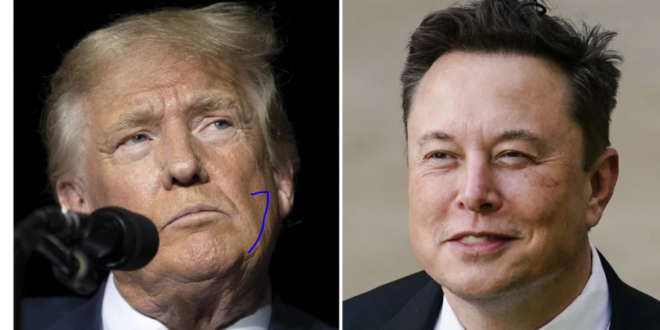Muhamad Yehia
During Kamala Harris’ thrill ride that has upended the 2024 presidential campaign, journalists for the most part have been on the outside looking in. The vice president hasn’t given an interview and has barely engaged with reporters since becoming the Democratic choice to replace Joe Biden.
That’s about to change, now that it has become a campaign issue. But for journalists, the larger lesson is that their role as presidential gatekeepers is probably diminishing forever.
Harris travels with reporters on Air Force Two and frequently talks to them, but her campaign staff insists the conversations are off the record. Outside of the plane on Thursday, she approached cameras and notebooks to publicly answer some questions, and one of them was about when she would sit down for an in-depth interview.
“I’ve talked to my team,” she said. “I want us to get an interview together by the end of the month.
She spoke on the same afternoon that her Republican opponent, former President Donald Trump, gave a news conference at his Mar-a-Lago resort, in part to draw a contrast with Harris. “She’s not smart enough to do a news conference,” Trump said. His vice presidential candidate, JD Vance, posted a comment on social media to point out that Trump was doing something that Harris hadn’t
The landscape for candidate interviews has changed
Given that modern presidential campaigns are essentially marketing operations, Harris’ stance is not surprising. For the teams behind candidates, “the goal is to control the message as much as possible,” said Kevin Madden, a Republican communications strategist who was senior adviser to Mitt Romney’s campaigns in 2008 and 2012
Interviews and news conferences take that control away. Candidates are at the mercy of questions that journalists raise — even if they try to change the subject. News outlets decide which answers are newsworthy and will be sliced and diced into soundbites that rocket around social networks, frequently devoid of the context in which they were uttered.
In such an environment, the value and perception of the sit-down interview has changed — for journalists and candidates alike.
When Trump appeared last month in an interview format before the National Association of Black Journalists, his aides almost certainly didn’t want the main headline to be about their candidate suggesting Harris had misled voters about her race.
Between Instagram, Tik-Tok, televised rallies, emails or texts, campaigns have so many other ways of getting their message across to potential voters today. This lessens the need to directly engage with journalists, Madden said.
“Presidential campaigns increasingly are conducted as performances before a sympathetic audience, one that is invited to watch and listen but not to question or respond,” The New York Times wrote in a recent editorial.
Harris’ unusual late entry into the race means she bypassed vetting by voters, with journalists often as their surrogates, that takes on a more important role in the early stages of a nomination fight where a more intimate form of retail politics varies from state to state. That makes it all the more important that she be available to speak about her record and plans, the newspaper argued.
“Americans deserve the opportunity to ask questions of those who are seeking to lead their government,” the editorial said.
 موقع وجه أفريقيا موقع وجه أفريقيا هو موقع مهتم بمتابعة التطورات في القارة الأفريقية
موقع وجه أفريقيا موقع وجه أفريقيا هو موقع مهتم بمتابعة التطورات في القارة الأفريقية



